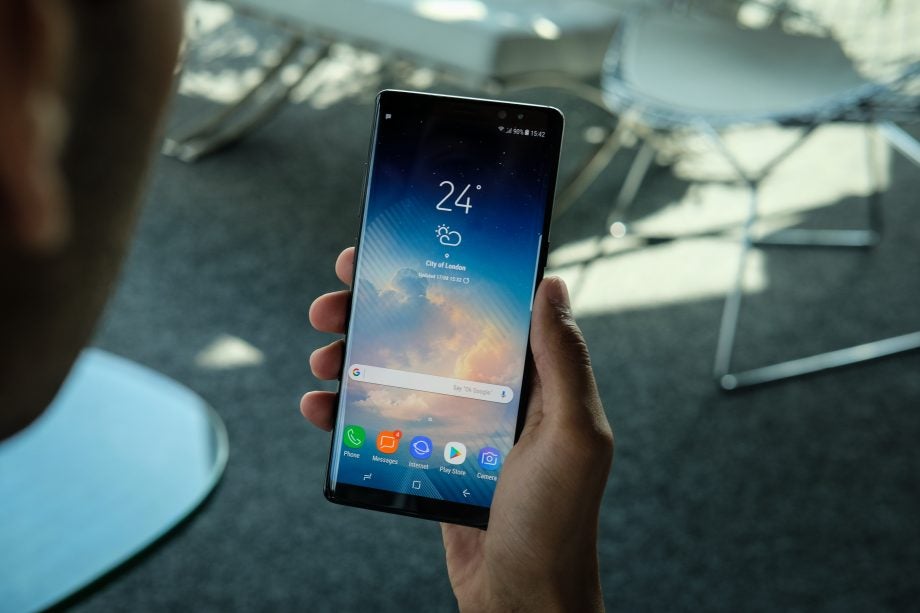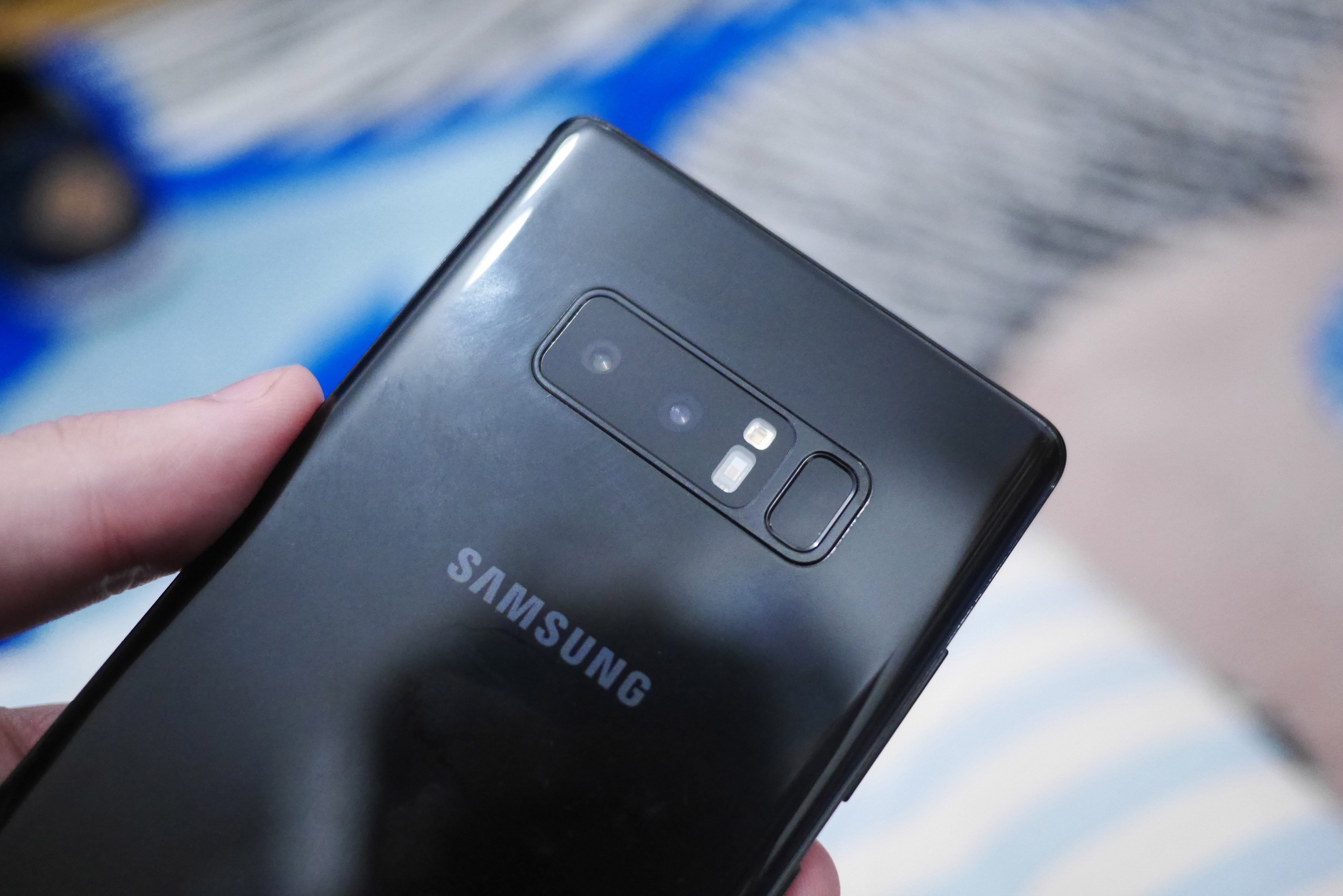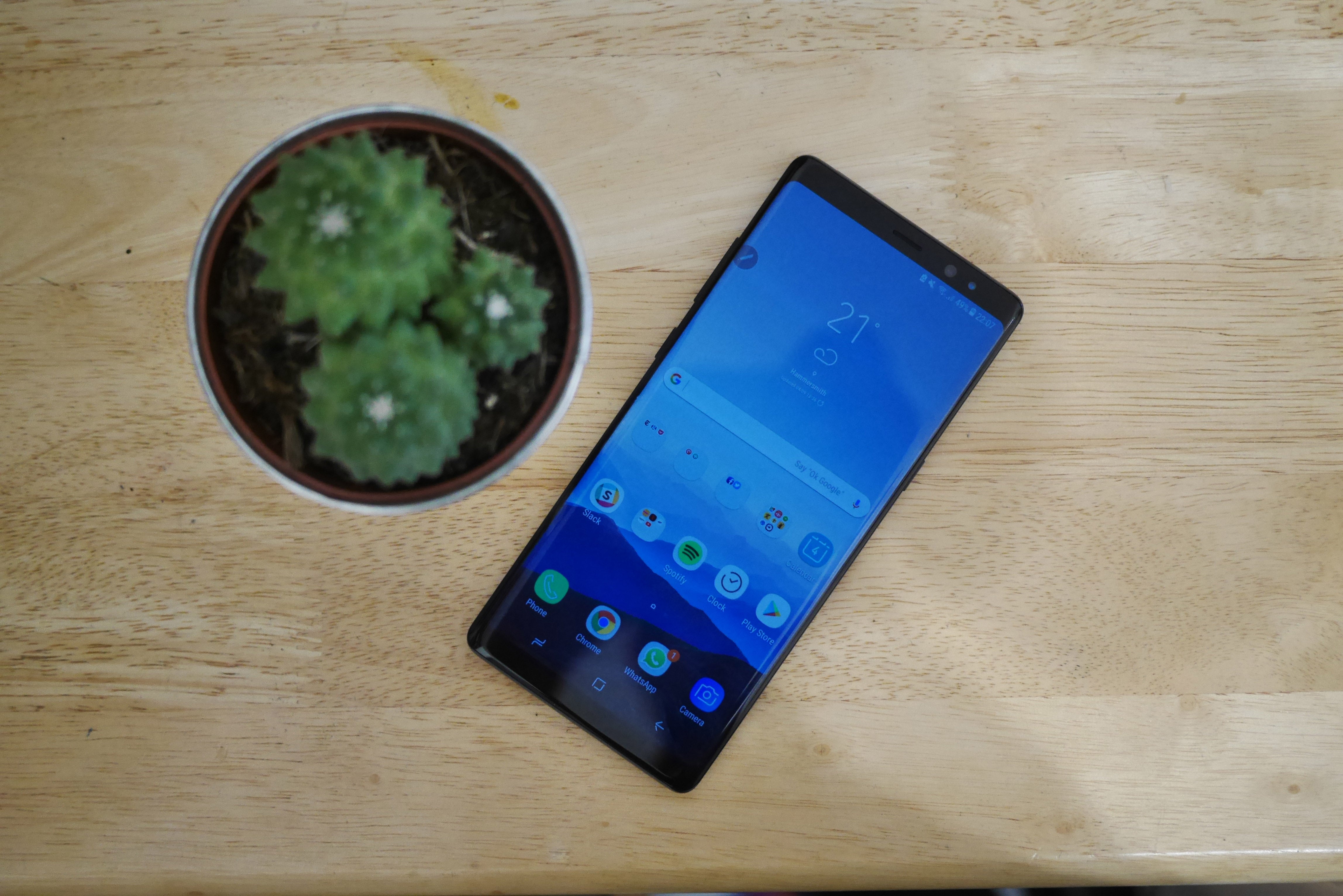Samsung Galaxy Note 8 Review - Performance, battery life and verdict Review
Performance, battery life and verdict
Performance, battery life and verdict

Sections
- Page 1 Samsung Galaxy Note 8 Review
- Page 2 Software and S Pen Review
- Page 3 Camera Review
- Page 4 Performance, battery life and verdict Review
Samsung Galaxy Note 8 – Performance
Powered by the Samsung Exynos 8895 system-on-a-chip in the UK, this phone performs almost identically to the Samsung Galaxy S8 and S8+, but not a whole lot worse than the 8910 toting Samsung Galaxy S9. In GeekBench 4 it managed 2003 and 6666 in the single- and multi-core tests respectively, while in AnTuTu it managed 171,413. All of these are within a rounding error of the Note 8’s smaller siblings.

In regular use, I had no performance concerns. The Note 8 opens apps and web pages in a flash, can play 3D games such as Real Racing 3 at the best possible settings, and generally feels like an exceptionally competent work companion. I have no complaints.
The Note 8 supports Samsung DeX, which I reviewed using the Galaxy S8+. The fact that this phone is powerful enough to support an almost proper desktop PC experience is seriously impressive.
Wi-Fi performance is fine, although it’s still not as fast at switching and connecting to networks as Huawei phones. Call quality is excellent, too.
Related: Best tablets
Samsung Galaxy Note 8 – Battery life
Note devices were once heralded for excellent battery life, but with the Note 8 it’s merely ‘okay’. The battery cell itself is actually smaller than the one in the S8+, even though the screen is bigger and brighter here.
In its regular power mode mode, I’d be highly concerned that the Note 8’s 3300mAh battery wouldn’t get me through a full day of web browsing, social media, streaming music and taking photos.
I had a day out in which I browsed the web on the phone for a couple of hours, took maybe 50 photos and did about 15 minutes of Maps navigation, and by the end of the day I was scrabbling for a charger. Things did get better though, and throughout the majority of the review I was averaging 5 hours of screen-on time. This isn’t a bad number, but I would expect something more substantial for a phone of this size.
The phone does at least charge ridiculously quickly; expect to go from an empty tank to full in 90 minutes with the supplied charger.
With the optimised mode switched on, I’d be more confident about getting through a day of heavy use. The phone is noticeably slower (around 20% according to my benchmarks), but it’s still fast enough not to be annoying.
Samsung’s power-saving modes are among the best I’ve ever used, with each one customisable to your exact wants and needs. But I’d much prefer it if I could ignore them and have a phone that I could use all day.

I think Samsung is making an assumption that the people who buy this phone will spend a good portion of their day at work, with the phone plugged in. If that sounds like you, you’ll be fine. But just remember than when you take your Note 8 out for the weekend or on holiday, you’ll absolutely need a battery pack on your person or in your luggage.
Should I buy the Galaxy Note 8?
By this point, you’re probably tossing up whether you should buy a Galaxy S8+, the Note 8 or maybe even wait for the iPhone X. The Note 8 costs close to £900 upfront, while the S8+ is smidge under £800. Over the course of a contract you probably won’t feel much of a difference.
It comes down to features, then. The Note 8 has a dual-camera setup which is entirely non-essential yet extremely fun to use, while the stylus is certainly useful for many. Meanwhile, the S8+ has an easier-to-hold design and a larger battery at 3500mAh, which for many people will be the difference between making it through a full day of heavy usage and having to dig out the battery pack at 9pm.
If its extra pen and camera features interest you, the Note 8 is undoubtedly a decent buy if you can stomach learning how to use power-saving modes.
Verdict
A worthy comeback for the Galaxy Note brand. The Note 8 has an excellent camera and stunning display, but the battery could be better.
Trusted Score
Score in detail
-
Performance 9
-
Camera 9
-
Design 9
-
Battery Life 7
-
Value 7
-
Software 8
-
Calls & Sound 7
-
Screen Quality 10


